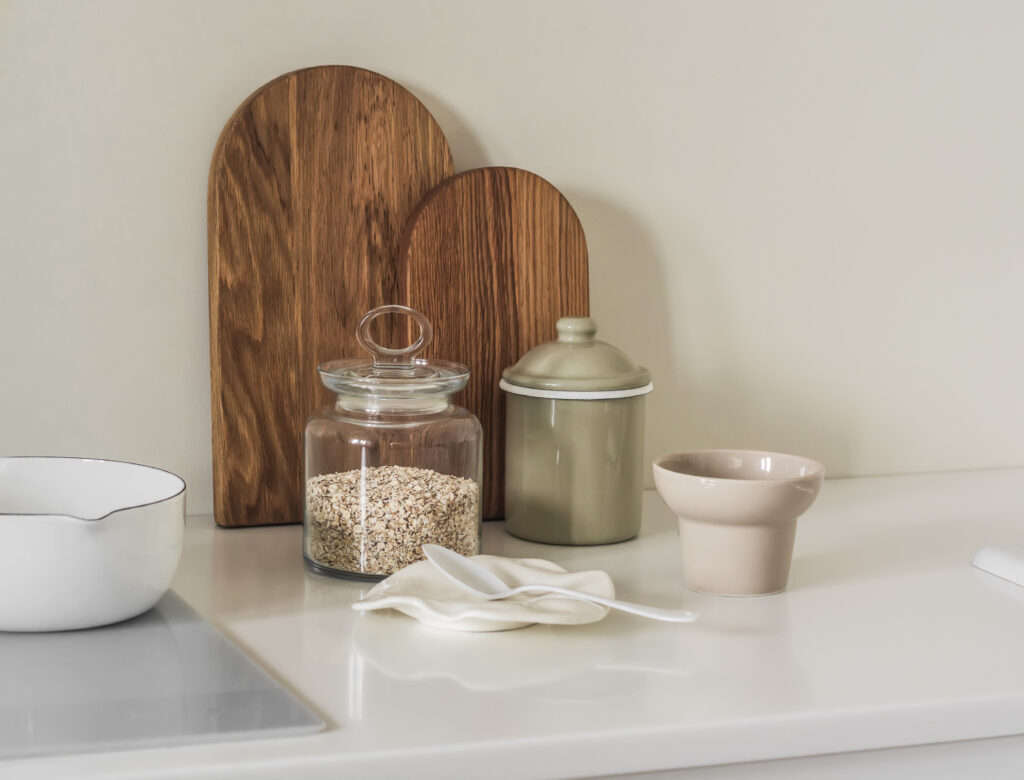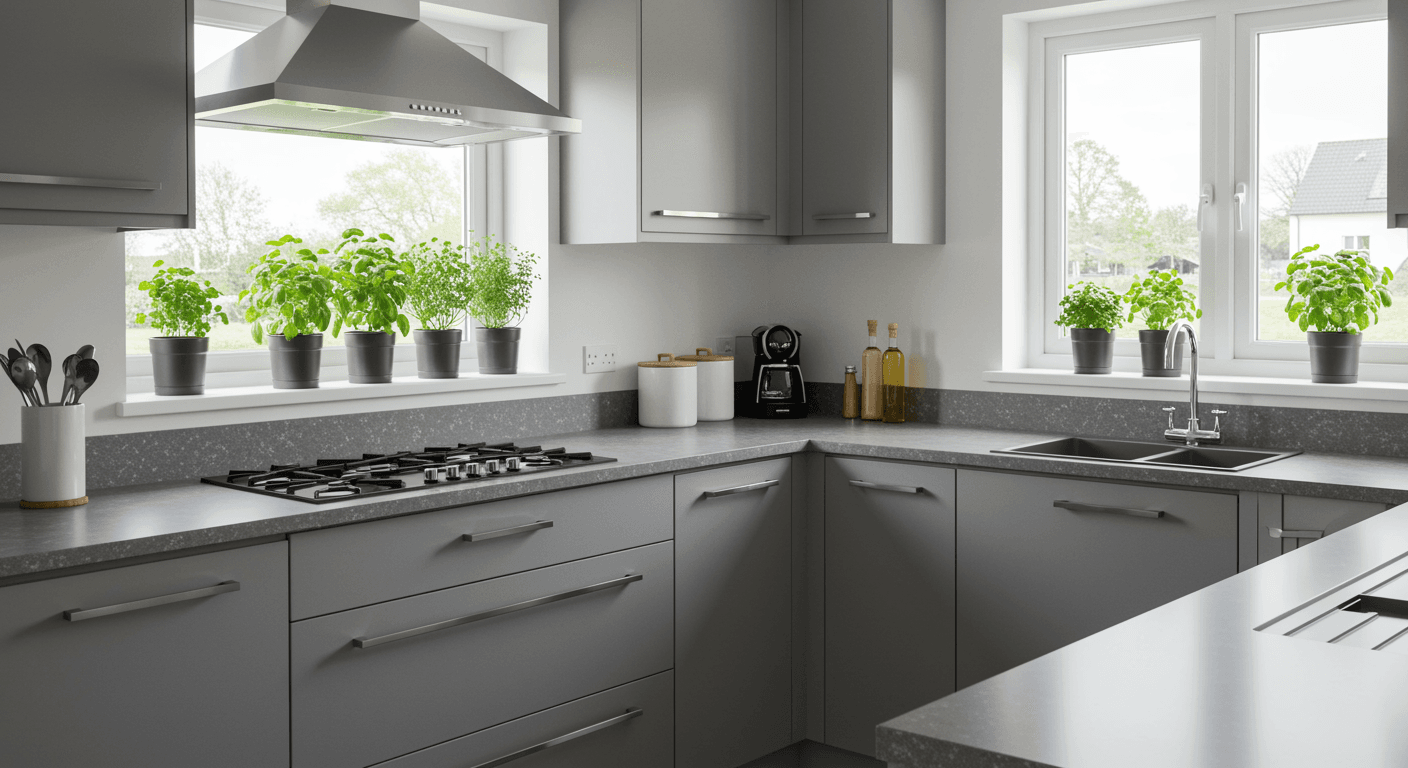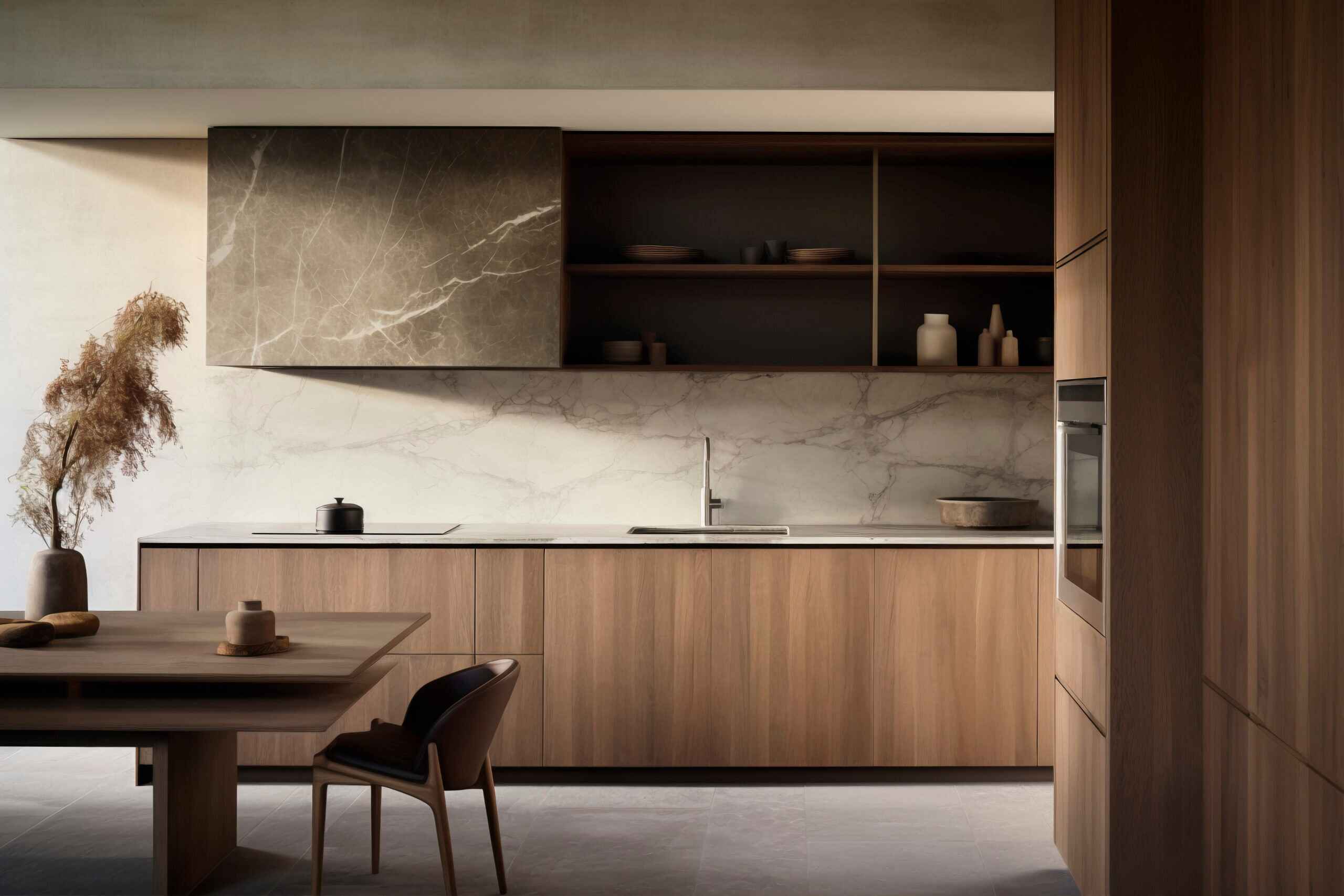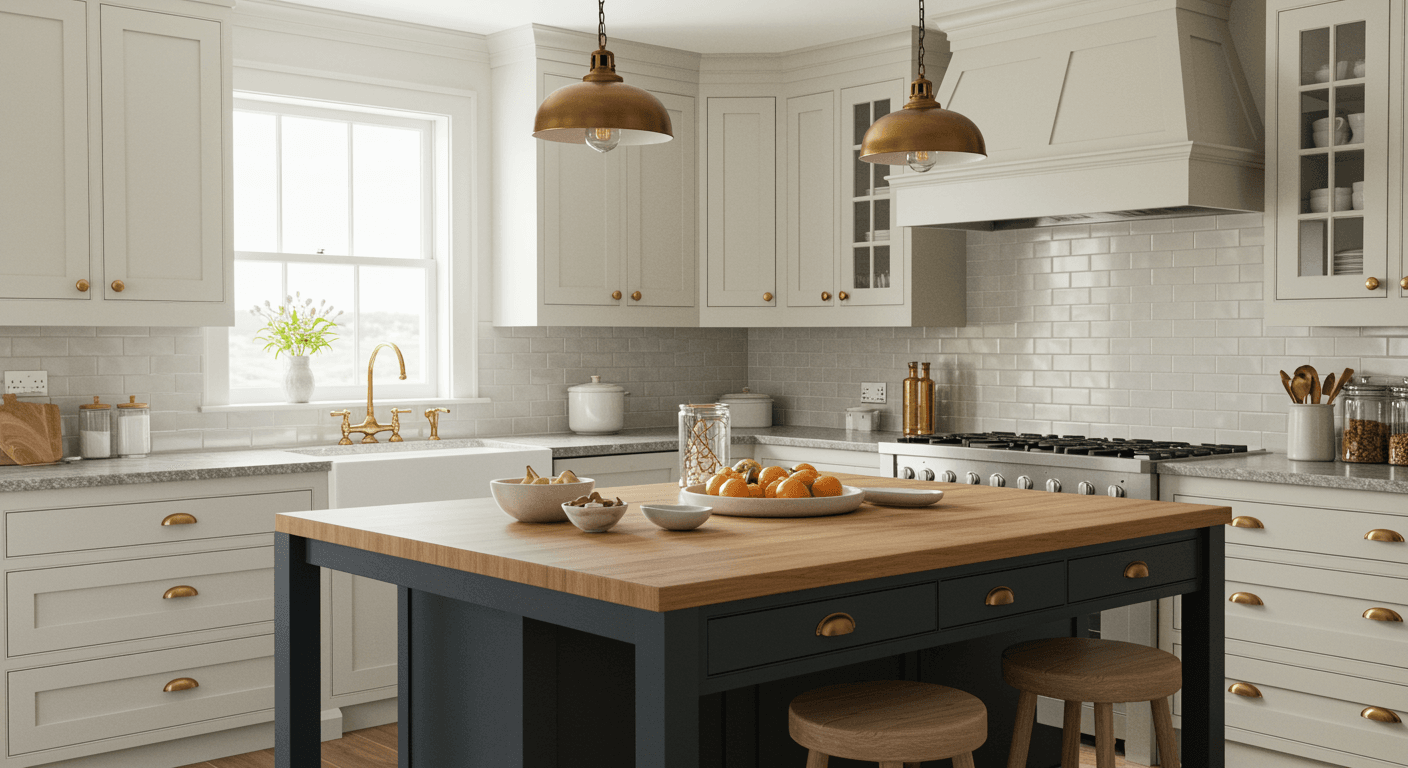When it comes to selecting the right countertop choice, there are a lot of decisions that need to be made, most notably the material used considering the material of the countertop is going to affect the three most important points of the space, the points being design, functionality and maintenance. Among the many material options available to select from, there is one that has recently resurged in popularity.
@ampquartzcabinets No rust, no fuss. Just cabinets that actually last. 6G Honeycomb Aluminum keeps things lightweight, durable, and easy to clean (basically, stress-free living)🏡 DM us and start your upgrade journey today! #HoneycombAluminium #AluminiumKitchenCabinet #PracticalDesign #EasyLiving #ampquartz
♬ original sound – Jacobdior
In this guide, we’ll be discussing and comparing Quartz against other materials used to create countertops like granite, marble and other solid surfaces, hoping that it will help you make a decision that will suit your lifestyle and taste.
:max_bytes(150000):strip_icc():format(webp)/quartz-vs-granite-countertops-1822078_quartz_detail-ecc5d946de2e46f18b9c61839bd53dcf.jpg)
Right Countertop Choice: Quartz
Quartz countertops, Constructed from man-made stone made from quartz crystals, resin and pigments, come with a variety of advantages. Their non-porous nature makes them resistant to stains, scratches and heat, making them a perfect choice for busy kitchen areas.
Aside from just functionality, quartz countertops also offer a diverse range of designs as well, ranging from colours and patterns, giving new or current home owners with ample opportunities for customization.
Besides being easy to clean with mere soap and water, quartz countertops require no sealing. Unlike its natural stone counterpart. For one reason, it is non-porous, preventing bacteria and mould build-up, hence hygienically appealing. Quartz countertops strike just about the right balance between stylishness and practicality in any place they are set up and used in.
:max_bytes(150000):strip_icc():format(webp)/quartz-vs-granite-countertops-1822078_granite_detail-15816e1dfbcf4b2497fa1fd79d621067.jpg)
Right Countertop Choice: Granite
Granite countertops are known for their natural beauty and unique patterns with each slab having its own geological story. Though their durability is undeniable while also needing minimal maintenance, home owners should be aware of the potential drawbacks such as needing to be sealed periodically to prevent stains or the susceptibility to chip.
Granite is a classic choice for kitchens and bathrooms alike, providing durability with style and uniqueness. Coming from natural stone, granite provides many colour and pattern choices, each slab one of a kind, which allows it to add character to any space. Famed for its durability, granite is scratch, heat and stain-resistant if sealed correctly, thus being suitable for high-traffic areas.
Its hard surface is perfect for meal preparation, while the polished finish enhances the appeal of a room. Although granite needs sealing to retain its resistance to moisture and stains, its maintenance is generally low, and simple cleaning methods suffice for everyday cleaning. Granite countertops can add value to a property, thus being a prime target among homebuyers who are looking into investing in high-end materials.
Although the initial installation costs may be higher than that of other materials, granite is a long-term investment worth considering for any home owner who desires both functionality and style.
Right Countertop Choice: Marble
Marble countertops are the pinnacle of timeless elegance. However they come with their own set of potential issues such as the susceptibility to scratch and stain, due to this nature, a more diligent and delicate maintenance practice such as periodic sealing are needed more often.
Marble countertops will always be the epitome of class and sophistication that any home owner would want in his or her kitchen or bathroom. Celebrated for its natural beauty, every slab has a different veining pattern, making each countertop custom. This luxurious material is charismatic, adding grandeur to any space.
Besides being great to look at, marble happens to be very durable and can last for many years provided it is well taken care of. It is also heat-resistant, making it an ideal surface for baking and cooking. On the other hand, marble requires regular maintenance in order to preserve its shine and avoid stains, since it is porous and prone to etching from acidic substances.
Sealing the surface every now and then helps keep it in good condition. From pure white marble to the striking green and black varieties, marble countertops come in a host of colours that easily blend with the various interior styles, creating a focal point that enhances the beauty of your home.
:max_bytes(150000):strip_icc():format(webp)/solid-surface-countertop-basics-1822191_acrylic_solidsurface_detail-406793b4f2104d5982fe5a77c717cbb0.jpg)
Solid Surface Countertops – Seamless Integration
@ampquartzcabinets Tiny kitchen? No problem. 🙌 With the right storage system, even the smallest spaces can feel spacious and functional. Good vibes, no clutter!🍳 #SmallKitchenInspo #SmartStorageSystem #ampquartz
♬ original sound – Anis Syuhada – Anis Syuhada
Solid surface countertops are the ones with the most customization option, making them an all around choice for modern kitchen due to how easy it can fit into the aesthetics. While being resistant to germs and easy to repair from scratches, homeowners should consider that solid surfaces are usually vulnerable to heat and have a higher chance of being damaged through scratches.
Making the decision
When it comes to a side by side comparison between materials, it is really important to consider the pros and cons of each material due to their limiting factors such as cost, maintenance requirements, durability and how they would fit into the space. As before technical specifications personal factors play a vital role in the decision making process.
Factors such as lifestyle, budget, design elements and preferences are elements that should guide your choice on your countertop material which is why we are here to help you make that decision. Here at AmpQuartz, with our years of experience, we can guide you to making the perfect decision on which material is best for you and your home. With our diverse range of countertops, each designed to cater to different lifestyles and preferences, our experts are available to guide you towards making the best choice for a kitchen that seamlessly combines both functionality and aesthetics.
Another factor to consider when choosing the best material for your kitchen countertop is its environmental impact. Different materials have different levels of sustainability, carbon footprint, and recyclability. Here are some of the pros and cons of each material in terms of eco-friendliness:
- Quartz: Quartz is a man-made material that uses natural quartz crystals and resin. It is a durable and low-maintenance material that does not require sealing or polishing. However, quartz is not very eco-friendly, as it consumes a lot of energy and water during its production. It also emits volatile organic compounds (VOCs) that can harm the air quality and human health. Quartz is not biodegradable or recyclable, and it can end up in landfills when discarded.
- Granite: Granite is a natural stone material that is formed from the cooling and solidification of magma. It is a beautiful and elegant material that can last for a long time. However, granite is also not very eco-friendly, as it involves a lot of quarrying and transportation that can damage the environment. Granite also requires sealing and polishing to prevent staining and etching, which can involve the use of harmful chemicals. Granite is not biodegradable or recyclable, and it can also end up in landfills when discarded.
- Marble: Marble is a natural stone material that is formed from the metamorphism of limestone. It is a luxurious and refined material that can increase the value and appeal of your home. However, marble is also not very eco-friendly, as it involves a lot of quarrying and transportation that can damage the environment. Marble also requires sealing and polishing to prevent staining and etching, which can involve the use of harmful chemicals. Marble is not biodegradable or recyclable, and it can also end up in landfills when discarded.






